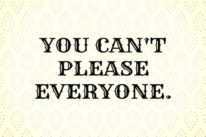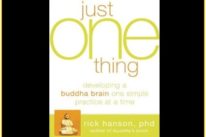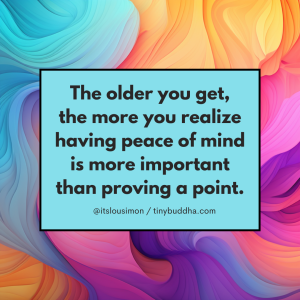
“Being a people-pleaser may be more than a personality trait; it could be a response to serious trauma.” ~Alex Bachert
Growing up in a home, school, and church that placed a lot of value on good behavior, self-discipline, and corporal punishment, I was a model child. There could have been an American Girl doll designed after me—the well-mannered church girl with a nineties hairbow edition.
I was quiet and pleasant and never got sent to the principal’s office. Complaining and “ugly” emotions were simply not allowed. Though I was very rambunctious and “rebellious” as a toddler, all of that was cleansed from my personality by the time I was school-aged.
I had no other choice. I felt unsafe in my body at the slightest hint that someone was upset with me. It was enough to tame my inner rebel, at least for many years.
I carried this pattern into adulthood. I found myself in jobs with supervisors who would fly off the handle at every opportunity. I worked extra hard, more than anyone else, to avoid getting in trouble. When my colleagues got yelled at over their mistakes, they laughed with amusement under their breath—but when the anger was directed at me, I was ridden with anxiety.
How could my coworkers brush off our manager’s anger, but I felt triggered for hours afterward?
It took me many years to learn the answer—that some of us are conditioned from a young age to develop a deep-seated fear of losing our sense of belonging and safety in our relationships. To cope with this fear, we develop strategies to safeguard ourselves, which for some, turns into a habit of people-pleasing.
There’s one clear common denominator for people-pleasers—feeling beholden to others. You put your needs last and feel obligated to manage everyone else’s happiness. You’re hypersensitive to being judged, shamed, and rejected. You worry about what other people think about you. You overextend yourself to be helpful. When you dare to stand up for yourself, you suffer from anxiety and guilt.
When you don’t address and change these patterns, you may eventually feel resentful, frustrated, and angry. It compromises your emotional and physical well-being and contributes to an overwhelming sense of powerlessness.
And it lights a blazing fire under your ass.
Because we aren’t responsible for juggling other people’s emotions.
We don’t owe anyone comfort.
We’re not a charity receptacle for others’ emotional venting, unhealed trauma, or misdirected anger.
Our time, energy, and well-being are not up for negotiation.
And we don’t deserve the guilt-tripping manipulation.
Truthfully, we cannot control how other people show up in our relationships, but we can change our patterns of powerlessness and take back our lives, and it doesn’t have to compromise our genuine desire to care for others.
Brain Ruts
It’s not a mystery what you should be doing in lieu of carrying the burden of responsibility that comes with people-pleasing.
You need to set boundaries, speak your truth, be more confrontational, use your voice to advocate for yourself, separate your feelings from others, and put your needs first.
Which begs the question—what’s getting in the way of you taking these steps?
Though you may feel the need to change your patterns through sheer willpower or more self-discipline, that isn’t the answer.
You don’t need to read useless books about how to “grab life by the horns” or “grow some balls” (ew, gross!).
You don’t need to muscle through debilitating anxiety or guilt.
You don’t need to give-up your generosity or empathy to take back your power in one-sided relationships.
You don’t need to be “thicker skinned” or less “sensitive.” (Your sensitivity is a gift.)
Here’s the little-known truth about people-pleasing—it’s a learned pattern that gets “turned on” in your unconscious mind over and over again.
Whether it’s avoiding conflict, freezing up when you need to speak your truth, or feeling guilty, people-pleasing is a survival strategy. And all survival strategies are a set of automated behaviors, thoughts, and emotions that repeatedly get turned on unconsciously.
In a sense, you’re not fully in control of how your people-pleasing habits show up. Which is why just “trying harder” doesn’t work, because you can’t beat the speed at which your unconscious mind is turning on patterns.
Ninety percent of how we show up in life is unconscious and based on our past. Your brain needs to save energy, so it’s automating your decisions, behaviors, and feelings for you. Think of your bad habits as brain ruts.
Every time a people-pleasing habit is presenting itself, your brain is riding down the same neural pathway, deepening the grooves, much like how a dirt path naturally forms over time if you keep walking over the grass.
This well-worn path appears to be safer and easier than walking through the wild, unruly grass, which feels unfamiliar, dangerous, and risky to deal with—you fear being judged, shamed, or rejected out there. Just the thought of standing up to your evil mother-in-law turns on the anxiety.
But you’ve reached a point where you long to be in the wild grass. It represents the life you could be living—taking up space, effortlessly putting your needs first, being in your pleasure, and feeling amazing in your emotional well-being.
So how do you take the leap into the metaphorical grassy field of your “hell yes” life?
By planting new seeds in your unconscious mind and watering them on a regular basis.
Planting Seeds
If people-pleasing wasn’t a problem for you anymore, what would be possible in your life?
Imagine a scenario where you’ve already reconfigured the pathways of your unconscious mind and you feel exactly how you want to feel, showing up exactly how you want to, and it’s just easy. You’re confident, powerful, and unapologetic.
Whose rules would you stop following?
What boundaries, enmeshed in barbed wire, would you put in place?
Whose misdirected emotions would you feel bulletproof against?
What responsibilities would you shamelessly give up?
What self-indulgence would you treat yourself to?
What truths would come spilling from your mouth? (Truths that are SO electric, that you feel you might burst if you don’t say them right now!)
There’s a reason it’s so intoxicating to fantasize about our ideal life. We’re wired to “believe” what we imagine because a part of our brain doesn’t know the difference between what is real and imaginary. It’s the same reason we get emotionally pulled into TV and movies. You do realize it’s acting, right?
When the critical thinking part of your mind goes quiet—as it does when you’re getting wrapped up in a good story—you’re accessing your unconscious mind, where all habits are formed. It’s where we’re most swayed, influenced, and sold on ideas.
To get out of a people-pleasing brain rut, you need to plant seeds in your unconscious mind to “influence” yourself to show up the way you want in your life. Done with repetition, these seeds help build new neural pathways, making it possible to be your best self at home, work, and in your community.
One of the most powerful ways to plant seeds is to visualize while in a deeply relaxed state of mind. Here are some tips on how to get started.
Start in the Right Frame of Mind
Visualization works best when you’re feeling relaxed and calm in your body. If you’re actively triggered, self-regulate your emotions before jumping into visualization.
One quick and easy way to do this is to combine a breathing exercise with stimulation of the acupressure points on your wrist. Grab one wrist with the opposite hand and squeeze. Take one big inhale, hold at the top of your inhale for a couple seconds, and then exhale twice as long. Repeat two to three times. Once you feel nice and grounded, find a quiet place without any interruptions so you can focus and go inward.
Get Specific
The brain works in very specific, finite ways. If you want to be a badass who lives life on your terms, what exactly does that look like? Imagine yourself in specific places, taking specific actions, feeling a certain way about it. Focus on actions like speaking your truth, confronting people, feeling confident, setting boundaries, etc.
Repetition Counts
Your mind needs enough new information on who you want to be in order to generalize the changes into your life. You don’t need to visualize for long periods of time—two to three minutes at a time is enough, but be sure to make it a part of your routine. Try starting with a handful of times a week.
Water the Seeds
Take real-life action that supports the person you’re becoming. Your brain and nervous system are always learning and adapting when you show up in new ways. It’s like providing the proof to yourself that yes, I can do this. Start with small steps. Choose places where you want to put yourself first and practice using your voice to advocate for yourself. Be tenacious about doing this work—the confidence and bravery you crave will naturally emerge.
About Krissy Loveman
Krissy Loveman is a trauma-sensitive life coach and shadow worker who helps people build confidence and reclaim their power over anxiety, people-pleasing, and low self-esteem. She specializes in rewiring neural pathways to create deep and lasting change. Get her free Centering practice, a guided somatic meditation that invites you to tap into your inherent sense of self-worth and who you’re becoming.













 Though I run this site, it is not mine. It's ours. It's not about me. It's about us. Your stories and your wisdom are just as meaningful as mine.
Though I run this site, it is not mine. It's ours. It's not about me. It's about us. Your stories and your wisdom are just as meaningful as mine. 